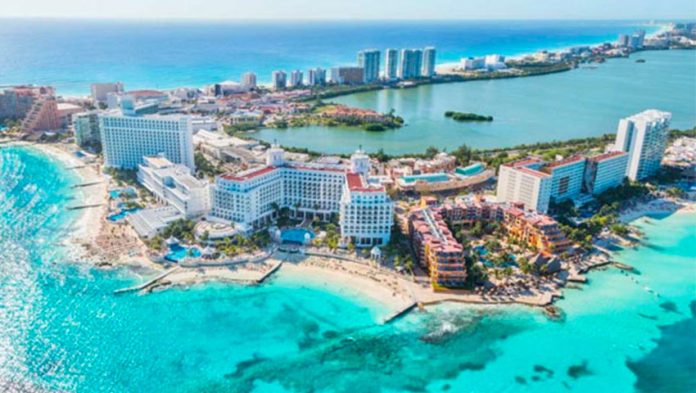The Spanish hotel chain Riu Hotels & Resorts has filed an appeal against a court ruling that ordered the definitive suspension of construction of a 530-room hotel in Cancún’s hotel zone.
A district court in the Caribbean coast resort city last month ordered the chain to permanently halt the construction of the US $95.6-million Hotel Riviera Cancún, saying the company reneged on promises it made to upgrade wastewater treatment facilities at a cost of 60 million pesos (US $2.9 million).
Rui’s legal team said the injunction request that resulted in the court order was related to the alleged destruction of flora and fauna and not the management of wastewater and therefore the definitive suspension is invalid.
Lawyers also said that Riu has authorization from the federal Environment Ministry to build a wastewater treatment plant within the hotel complex. The plant will allow the hotel to manage ecologically its wastewater without using the city’s treatment facilities, they said.
As a result, public treatment plants won’t be placed under any additional pressure by the operation of the hotel, the legal team argued.
The district court judge had noted that Cancun’s three municipal wastewater treatment plants are at their limit and can’t handle the extra load the hotel would generate.
Riu’s legal defense also said that the company has fully proven that the hotel project won’t damage the environment and claimed that false accusations stemming from a conflict with the owner of a neighboring property have been made against it.
The recent suspension order is not the first legal obstacle Riu has faced to build the hotel, which would be the chain’s fifth in Quintana Roo. The project was suspended in 2016 due to concerns about the impact it would have on adjoining mangroves.
However, it subsequently got the green light to proceed.
Riu also faces opposition to its project from the National Tourism Promotion Fund (Fonatur), which created Cancún as an affordable, sustainable vacation spot for Mexicans in 1974 and remains in charge of municipal facilities.
Fonatur chief Rogelio Jiménez Pons said in February that the Cancún hotel zone doesn’t have the capacity to support new developments.
He said that Fonatur had offered land to the developers of the Grand Island hotel, a US $1-billion, 3,000-room project, and the Riviera Cancún in other destinations “where new hotel investment really is needed,” such as Huatulco, Oaxaca, and other resort cities that were developed by the tourism fund as planned projects.
Jiménez threatened to put an end to Fonatur’s management of Cancún if such projects were permitted to go ahead.
Fonatur legal director Alejandro Varela has also expressed opposition to the development of new projects in Cancún’s hotel zone.
“Fonatur is dead against over-densification of Cancún that doesn’t respect its original planning goals,” he said in February. “We believe that the number of rooms they are proposing far exceeds the capacity of services that Fonatur offers.”
Source: El Economista (sp)
